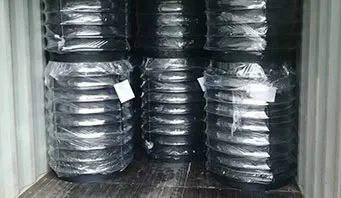
Dec . 14, 2024 07:49 Back to list
boiler settings for hot water
Boiler Settings for Hot Water A Comprehensive Guide
Boilers play a critical role in maintaining a comfortable environment in homes and businesses, particularly when it comes to hot water supply. Whether you rely on a boiler for heating your water for domestic use or for central heating, understanding how to set and manage your boiler settings is essential for efficiency and safety.
Understanding Your Boiler
Before adjusting any settings, it’s crucial to understand the type of boiler you have. There are primarily three types combi boilers, system boilers, and conventional boilers. Combi boilers are compact and provide hot water on demand, while system and conventional boilers require a hot water storage tank. Each system operates differently and requires specific settings for optimal performance.
Recommended Temperature Settings
The temperature setting of your boiler is one of the most important factors influencing the efficiency of your hot water supply. For domestic hot water, the ideal temperature is typically between 140°F (60°C) to 160°F (71°C). Setting your boiler too high can lead to scalding risks, particularly for children and elderly individuals. Conversely, setting it too low may encourage bacteria growth, such as Legionella, which thrives in lukewarm water.
If you have a hot water cylinder, consider adjusting the thermostat to about 140°F (60°C). This balance helps prevent bacterial growth while minimizing the risk of burns.
Efficiency and Energy Savings
boiler settings for hot water

Energy efficiency is a significant concern for homeowners and businesses alike. The Energy Saving Trust recommends keeping your boiler settings optimized to reduce energy waste. Lowering the hot water temperature to the recommended levels not only reduces the risk of burns but can also lead to savings on your energy bills.
Regular maintenance is equally crucial. Ensure that the boiler is serviced annually by a qualified technician. Regular checks and maintenance can improve efficiency, extend the life of your boiler, and help identify potential issues before they escalate.
Pressure Settings
Another critical aspect of boiler settings is the water pressure. The ideal pressure for most systems is around 1 to 1.5 bars when the system is cold. As the water heats up, the pressure may rise slightly, which is normal. If the pressure drops below 1 bar, you may need to add water to the system to avoid inefficiencies and potential breakdowns. Always consult your boiler’s manual for specific guidance on pressure adjustments.
Safety Precautions
Safety must always be a priority when managing your boiler settings. Ensure that all controls and safety valves are functioning correctly. Do not attempt to make significant adjustments without consulting a professional, particularly if you are unsure about the operations. Regular inspections can help identify any safety issues, including carbon monoxide leaks, which can pose serious health risks.
Conclusion
Understanding and optimizing your boiler settings for hot water are essential for maintaining a comfortable living or working environment while ensuring energy efficiency and safety. Regular monitoring of temperature and pressure, coupled with necessary maintenance and periodic professional inspections, can greatly enhance your boiler system's performance and lifespan. By taking these steps, you’ll not only enjoy reliable hot water but also contribute positively to energy conservation efforts. So take the time to get familiar with your boiler settings and make adjustments as needed to ensure it operates safely and efficiently.
-
Oil Fired Hot Water Boilers Sale - High Efficiency & Affordable
NewsJul.31,2025
-
High-Efficiency Commercial Oil Fired Steam Boiler for Industry
NewsJul.30,2025
-
High-Efficiency Biomass Fired Thermal Oil Boiler Solutions
NewsJul.30,2025
-
High Efficiency Gas Fired Thermal Oil Boiler for Industrial Heating
NewsJul.29,2025
-
High-Efficiency Gas Fired Hot Water Boiler for Sale – Reliable & Affordable
NewsJul.29,2025
-
High Efficiency Biomass Fired Hot Water Boiler for Industrial and Commercial Use
NewsJul.29,2025
Related PRODUCTS






















